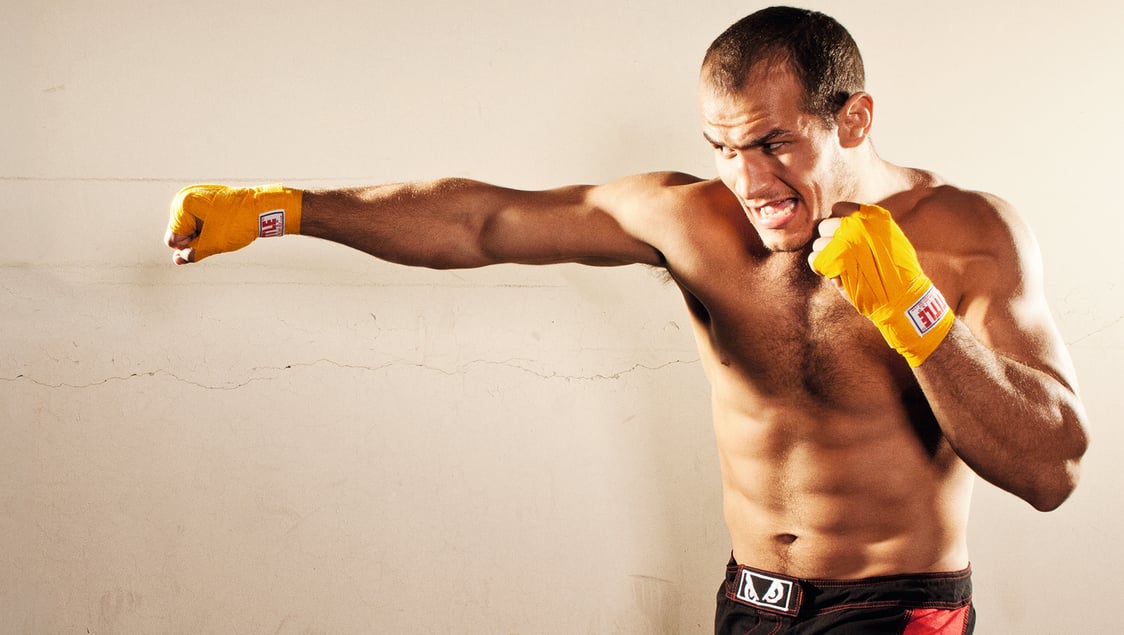
Issue 073
March 2011
Brazilian wrecking machine Junior Dos Santos is on a collision course with new UFC heavyweight champion Cain Velasquez. Fighters Only found out what makes this bomb tick.
The looming, muscular figure of Junior Dos Santos is something to behold. Even in the UFC heavyweight division, the playground of physiological monsters, the Brazilian is imposing. We have become accustomed to that huge torso moving sideways to the center of the Octagon, with the knockout specialist lifting that massive right arm and pointing to the floor with a punitive finger. The gesture says it all about the 26-year-old title contender, known as ‘Cigano’, the gypsy: let’s get it on, right here, right now, and bring everything you have.
And his opponents did. Fabricio Werdum, Stefan Struve, Mirko ‘Cro Cop’, Gabriel Gonzaga, Gilbert Yvel, Roy Nelson. But what they got in return was the raw, uncut power the Brazilian brings in every movement of the dance. His potential knows no bounds, and it remains a terrifying prospect what he could become in the division as his skills become more rounded. There is something of the Ancient Greek in the frame of Dos Santos, perhaps because his entire career in the UFC presents itself like a highlight reel. Bang, crash, wallop. Aspects of the giant Brazilian’s elevation to elite status have a comic-book feel. Kerrang! The wrecking machine strikes again.
The management team around Dos Santos was hardly tardy onto the scene when Cain Velasquez eviscerated Brock Lesnar at UFC 121 in October to lift the heavyweight belt of the sport’s leading mixed martial arts organization. A gargoyle’s grin had spread across the face of the huge Brazilian. He could taste the spoils, the booty of war. It was the fight he wanted. Two young upstarts, Velasquez and Dos Santos, an open canvas, a modern war painting for our time. And it will sell (though, in truth, Dos Santos also quite fancied a scrap with Lesnar). Fighter manager Ed Soares quickly and cleverly delivered Junior to the ESPN remote studio, high in the rafters of the Anaheim arena. He got the message on air on ESPN’s MMA Live post-fight analysis. It may not be a long bout when incumbent champion Velasquez and Dos Santos meet in 2011, but it will be both explosive and compelling. Dos Santos has stepped up to the plate every time the UFC has asked it of him. He believed that payback would arrive in the form of an imminent title shot. But with the new champion injured, in the form of a torn rotator cuff announced early in January, the contender could have to wait for up to a year for his chance at glory.
And Dos Santos is seething. “It’s hard to say how upset I am now. I’m in the best period of my career, training hard and working so hard to reach the fight of my life and suddenly it’s postponed eight months. I was so excited to finally reach my goal of a title shot and suddenly I got such bad news. Actually, it’s very hard to understand what happened. How come a person who comes out in perfect condition from a fight against Brock Lesnar gets hurt off-season? The last thing I heard about Velasquez was that he was in Mexico doing promotion in the local media. How come he got hurt?”
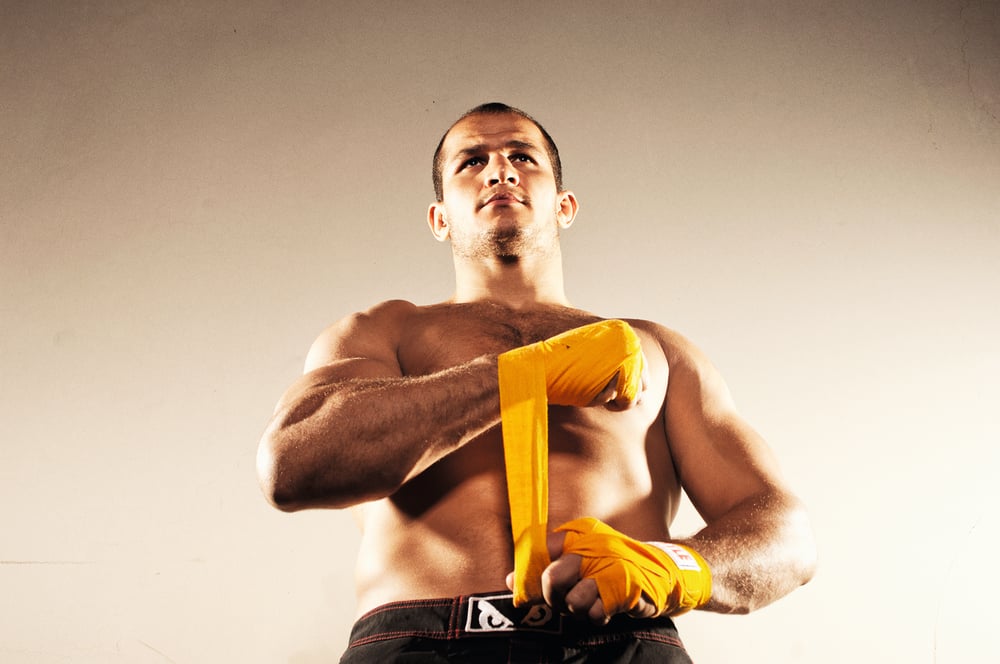
The gypsy, now wandering, is far from averse to an interim challenge. “I cannot wait eight months. Fighting is my life – not only because I love to do it but also because I need to fight for a living. I still don’t make money like the other top guys, so I must work. Of course, it would be amazing to face Velasquez at UFC Rio in August. But I can’t keep away from the Octagon for a year. So I really think the fairest outcome would be for Dana White to give me the opportunity to fight for an interim belt. I’m going to Rio to help Anderson Silva with his training for Vitor Belfort. There, I’ll await Dana’s decision. The only thing I know is I cannot wait eight months for Cain to recover. I have to fight and I’ll be ready when the UFC calls me.”
Cigano may be focused almost purely on striking, but his power is implicit. Even before Velasquez was slated to face Lesnar, Dos Santos had expressed his desire to fight both men. He believed he could surprise Lesnar with his speed, while he relished a stand-up battle with Velasquez. The meeting of the two young heavyweight studs promises to be an explosive contest. Yet, the backdrop to Dos Santos’ speedy ascent within mixed martial arts is even more remarkable. It seems incredible, quite literally, that he has been a professional mixed martial artist for only four years. Or that he hadn’t even tried out in martial arts until he was 19. But maturing quickly, adapting to changing scenarios around him, is the story of adolescent progress.
Junior Dos Santos Almeida was born in 1984 in a small settlement, Cacador, in Santa Catarina, in the south of Brazil. And the boy Dos Santos grew up quickly. Almost overnight. His father left his home when he was 11 years old. It had an effect he does not talk about in open and self-analytical detail. But it changed his life. “They [mom and dad] would fight a lot and my father would not come around the house, so I had limited access to my father,” he says. “I was left with my mother and my two sisters.” He does not say so, but it appears that he became the man of the house at a very young age. “I grew up mainly around my mother and my two sisters. There was not a lot of money, but we really did have everything and there was not a lot missing in my life. We did go through hardship but that built me into the person I am today. I have become a determined and strong individual who puts everything I have into what I do.” That includes those heavy, heavy punches. Dos Santos also had two older brothers, but he explained that he “never really had much of a relationship with them as they were much older and were already doing their own thing. I got on with my father but he didn’t really come to around to our house very often.” Cacador was an industrial town, in the countryside, most of the work involving the lumber trade.
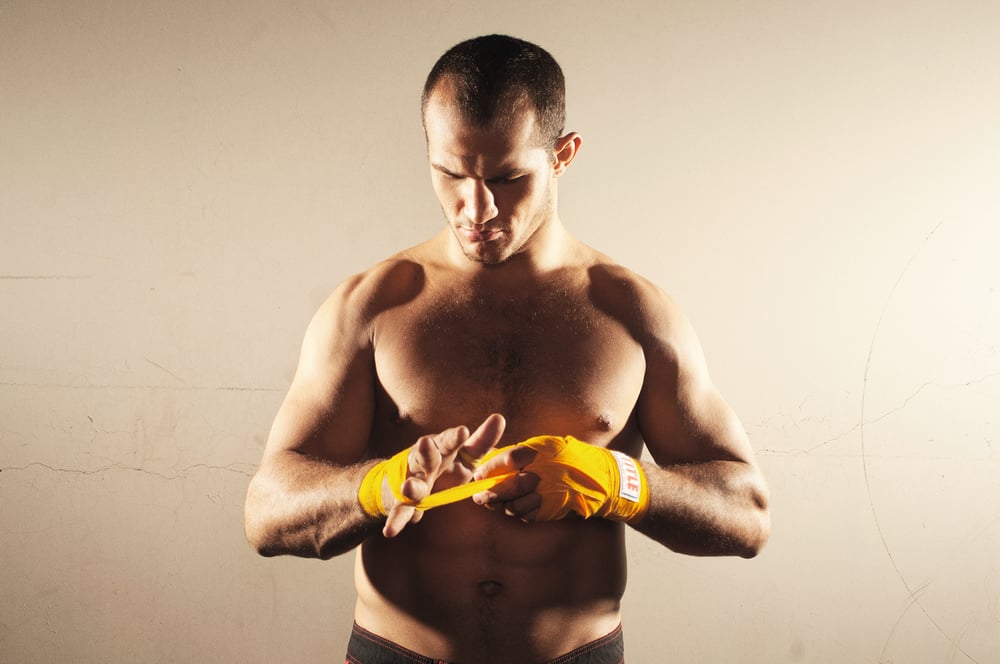
Both his parents were big people: his father standing 6’ 3”; his mother 5’ 9” tall. Unlike most small Brazilian boys, who dream of running out for their country on the soccer field in that joyful, ubiquitous yellow and green strip, Dos Santos “was never really into playing sport.” Instead, he had an appetite for work; earning money and doing his utmost to support his mother. It holds true with the character I have come across on the half dozen times I have been in his company. Dos Santos is calm, reflective and modest. He smiles a lot too. Even in the face of adversity. And there has been plenty of that in the quarter century of his existence. “I was always working hard. At the age of ten, I was out working in the street every day after school and at weekends, selling popsicles in the street until it was dark. I always worked hard to try and help my family with some extra money. From that young age, until I was in my late teens when I had the opportunity to start training full-time and earning money from fighting, I wanted to earn money to help the family. My mother was a janitor, cleaning for a company.” Already larger than his age suggested, he also sold newspapers in the street, making money for the family “to help to put food on the table.” Humility, he believes, is one of the assets of a fighter. “Having a struggle in life teaches you things. Part of learning in life is having a struggle. So when I got the opportunity – in MMA, to make a career and make a living – I knew I would give it my best every day of my life. That is how I have got to where I am now in the sport. I want to enjoy the opportunity but giving my all to this is just bred into me.”
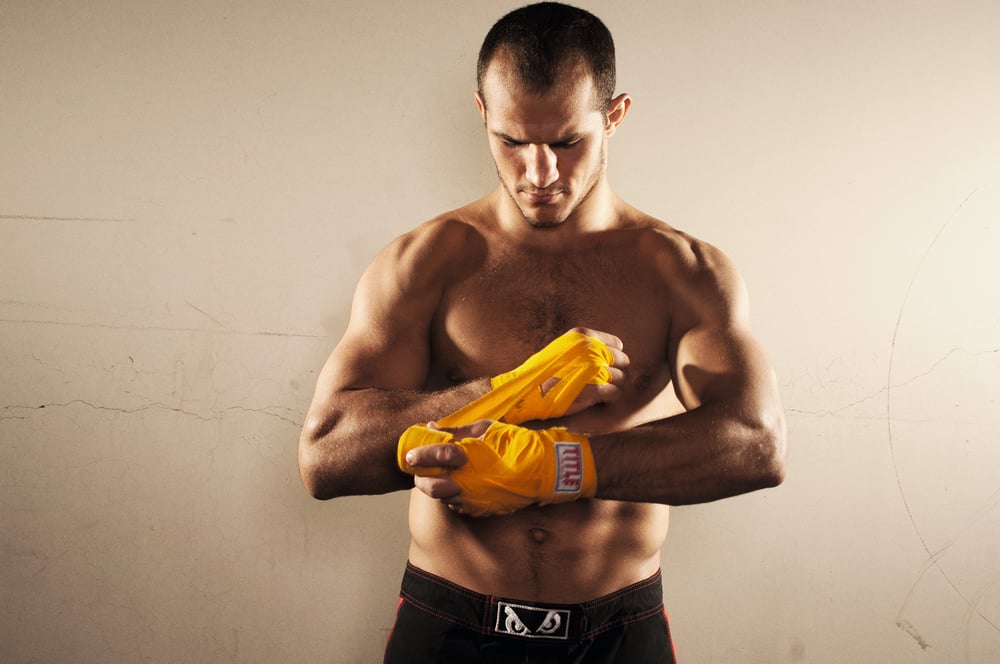
Flogging lollies on the street was tough. “I learned how to watch my back in that environment, and to be careful at all times, but I never really got into lots of fights there. I was involved in three fights in the street in my life and, on two of those occasions, I got beaten up pretty badly.” At that time, there was little sign that one day he’d take on a high-profile life in sport. In his teens, until he started training, there were no real prospects for him. In the woodcutting company, and in the stonemasons, it was hard physical graft, chopping wood and carrying stone in the factory: “It is why I am in the shape I am today.” At the age of 19, he moved to Salvador, Bahia, with his family. After a few attempts at being a busboy and a server at a couple of restaurants, he opened a small toyshop. “At that point, I still didn’t really have a goal for what I wanted to be in life.”
In April 2005, that all changed dramatically as he found himself taking his first jiu-jitsu lesson at a local academy. “Soon afterward, Yuri Carlton saw potential in me and invited me to attend his vale tudo class. He introduced me to professor Luiz Dorea, who began to teach me boxing. After that, I became very quickly a true student of the sport. I began because, one day, I realized I was getting out of shape. Everything slotted into place and I decided to put my life into it. Things had not been going so well for me, I thought I was getting fat, so I went along to the gym.” It was around this time that he was given the nickname Cigano. “I had long hair and at the time there was a popular soap opera in Brazil, and one of the characters was a gypsy who had long hair. My jiu-jitsu training partners started calling me ‘Cigano’.” He took to it, and a new bond began forming with warrior friends. Those luxurious himbo locks are now gone of course, replaced by a spartan shaven head.

Not long after he had started training at Carlton’s dojo, his coaches urged him to take it more seriously, telling him that he had huge potential. It was then that ‘Cigano’ determined that he would make a career for himself in MMA. “But it was my wife Visana who was totally behind me and gave me her full support. It was she who really made it all possible in that sense, because she believed in my dream. I would not have had time to train and work, and she deserves more credit than me for what has happened. With my career developing now, I can compensate her and I want to make her happy. My wife came to all my fights in Brazil and I hope she will fly out on the day I fight for the UFC heavyweight title.” His early career was raw and rapid. He turned professional in 2006 at the age of 21, a year after taking up jiu-jitsu, fighting in small-hall promotions in Brazil – Demo Fight, Extreme Fighting Championship and Minotauro Fights – winning six of his first seven bouts, his only loss coming from Joaquim Ferreira in a rematch. Dos Santos submitted to an armbar. That loss also taught him something. It exorcised the horrible nerves he had been feeling before every contest. “It was beneficial to me to lose a fight. I was very nervous and scared before fights, but once I had lost I was no longer worried about losing.”
But the opportunity of a lifetime presented itself in 2008, after he had come to the attention of the Ultimate Fighting Championship. By then, he was working alongside the Nogueira brothers and Anderson Silva, who had tapped into the huge potential he possessed. The UFC called with an offer to have him fight the Brazilian fighting legend and Pride alumnus, Fabricio Werdum. His first fight was like bugle call. It was the upset of the year, at UFC 90. Considered a major underdog, Dos Santos knocked out top contender Werdum in the first round with a powerful uppercut. On that night, Anderson Silva, one of his strongest allies and supporters, later dealt easily with Patrick Cote, in the main event, defending the UFC middleweight title.

Dos Santos was the talk of the televised card. He was an untried Brazilian against Werdum, who was going places and looked every inch a possible heavyweight title challenger down the line. Werdum turned to rubber under the force of Cigano’s uppercut, falling on all fours, with the debutant drilling out swarming punches looking for the finish. Referee Marc Fennell rescued the senseless jiu-jitsu expert at one minute 21 seconds of the first round. After a pause for realization Dos Santos, like some overgrown kid who just received the present he always wanted, sprinted around the Octagon and dove upwards and into the arms of ‘Big Nog’, Antonio Rodrigo Nogueira. Recalling the moment, Dos Santos explains: “It felt wonderful. No one knew who I was, he was next in line for a title shot. At that time he was where I am today.”
“I remember thinking, ‘My God I’m a lucky kid,’ because this was a spectacular knockout. I was very happy in that moment. It was just joy, because I knew I had worked hard for it and had come away with a great result. I didn’t dwell on it too long as I knew I needed to get back into the gym. When I debuted against Werdum, I had been sparring with the Nogueira brothers and it had been pretty even in sparring. It really filled me with confidence, and I really thought I had a good chance of beating Werdum. The Nogueira brothers are really technical and they had passed on a lot of things to me. I don’t get to train with them now as often as I did in the past. I also used to train with Anderson Silva quite a lot. These are the guys who helped to put me on the map, and they put a lot of themselves into me. I was given almost a brotherhood from the Nogueiras, and Anderson. I was so eager to train with them and I don’t think they were very impressed with me at the beginning. They beat me up quite a lot on sparring, you know. Slowly, I gained their respect, and over time they saw I had talent and potential. It was a symbiotic relationship that grew.”
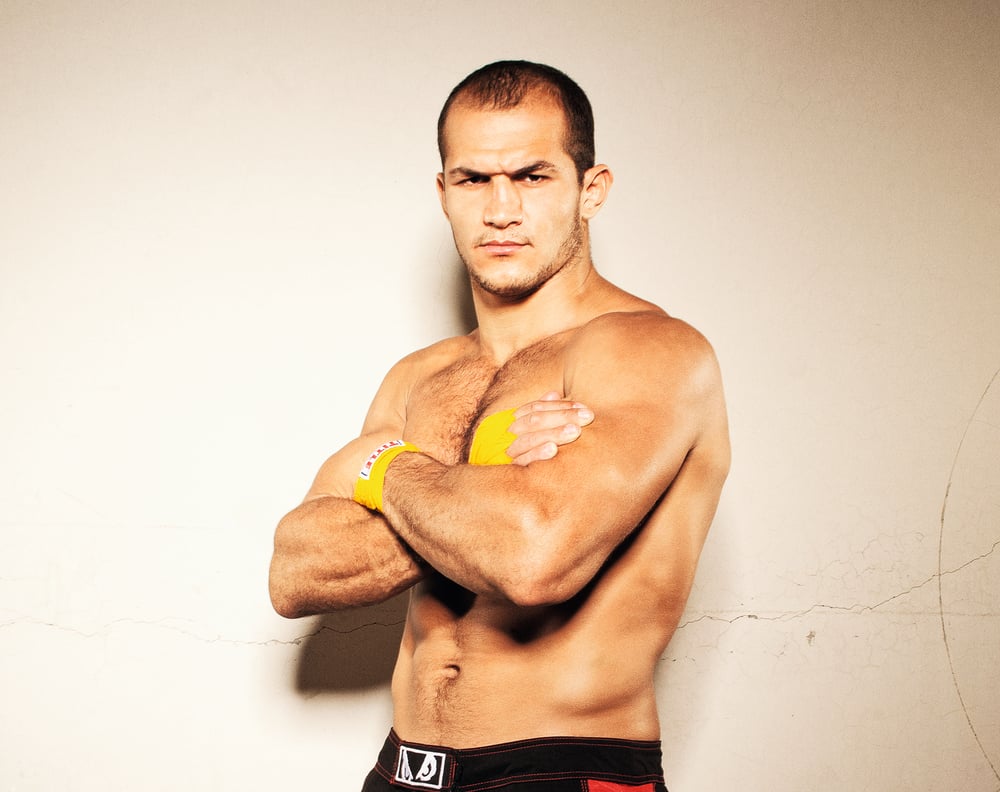
Yet he has grown with every fight, physically, technically, even spiritually. He continues to lay waste to high-level contenders and, between times, chalks up victories over those who are climbing the ladder with him. He remains a compelling character, about who we will learn more as his career progresses. At the highest level, he has brutally dispatched Mirko Cro Cop, by verbal submission, and Gabriel Gonzaga, who hasn't been quite the same since. The one fighter who has shown resilience against Dos Santos was Roy Nelson, last August, in Oakland, on the night Chael Sonnen almost defeated Anderson Silva at UFC 117. In the Nelson vs Dos Santos fight, the Brazilian used a variety of strikes and, for the first time, was taken the distance. That said, Nelson exposed Dos Santos’ rawness in many ways, even though it was a lop-sided unanimous decision (30-26, 30-27, 30-27). “I have a lot of respect for Nelson. He took all my punches, he never backed down and I think a lot of guys in the UFC will have a tough time against him,” says Dos Santos.
But it is now the contest with Velasquez, and the UFC heavyweight title belt, that gnaws at him. He admits that he has already started studying Cain’s style closely and realizes that the Mexican-American’s most likely ploy is to use his wrestling and take the contest to the ground, thus nullifying the Brazilian’s devastating punch power. “Of course, I want to go in there and outbox him, but I know he’s going to try and take me down. I’m training hard on my wrestling, training to better my wrestling skills and takedown defense so that if I am taken down I will be able to work against Cain on the ground. I’ve been working hard with Blackhouse Team Nogueira in San Diego, working with Mark Munoz. I was in California working on my Muay Thai, at Alliance, in training with Brandon Vera and Phil Davis. I’m working hard,” he explains. “It is no exaggeration to say that I live, breathe, eat and sleep MMA. When I’m not at the gym I’m home. I like to stay there, chill out. Sometimes I go out with friends, but I don’t drink. I can’t do those normal things. I want to be able to eat well and make weight easily. I walk around at 245lb… and that’s the way I like it.”
Dos Santos says he has great respect for what Velasquez has achieved. “I think Cain Velasquez deserves everything coming to him. He got the title shot and fought a good fight to win the heavyweight championship. Lesnar got caught by Cain, and no doubt he feels very frustrated. It will be an honor to fight Cain in the near future. It has been an amazing time for me over the last four or five years. It has meant total dedication. I don’t go out, I don’t drink: I am totally dedicated to my life in MMA. I listen to the advice of my teacher and the Nogueira brothers, who got me to where I am today. Without the advice of so many people and the support of my wife, I would be a nowhere man today.”

